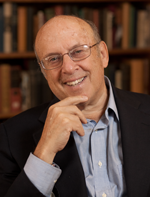
Jeffrey Carduner, Aesthetic Realism consultant, writes:
Why does the latest issue of this important, educational, always exciting journal have as its title “Urgent—What Poetry Really Is”? The answer will thrill and surprise you, and enable you to understand what you most hope for and what gets in the way! Read “Urgent—What Poetry Really Is,” the new and magnificent issue of The Right of Aesthetic Realism to Be Known.
The commentary by Ellen Reiss begins:
Dear Unknown Friends:
Here is the fourth part of the 1972 lecture we are serializing: We Approach Poetry Variously, by Eli Siegel. He is speaking about the great subject, the beautiful subject, a subject urgent for humanity: what poetry is. I’m aware it is unusual to say that this matter is urgent, that the difference between a real poem and something that may be wrongly taken for one has a happiness-vs-unhappiness meaning, even a life-vs-death, kindness-vs-cruelty meaning. But it has. And the reason is: poetry—true poetry—is JUSTICE, justice to a particular thing and to reality.
I am very glad to say again: I have seen that Eli Siegel is the critic who, after all the centuries, showed what poetry really is. And Aesthetic Realism itself arose from his doing so. The basis of Aesthetic Realism is the principle“All beauty”—and poetry is beauty in words—“All beauty is a making one of opposites, and the making one of opposites is what we are going after in ourselves.”
The Distinguishing Thing
In the section of the lecture included here, Mr. Siegel is speaking about the importance of poetic music. He is showing that a certain kind of sound is what distinguishes a true poem from one that may say something interesting but is not authentic poetry. To describe poetic music is a large, rich, subtle matter. But as a means of placing what you’ll soon read, I’ll quote some other statements by Eli Siegel. First, from “The New Simplicity,” his preface to Martha Baird’s collection of poems, Nice Deity:
Poetic intuition discerns the presence of what the whole world is like in a specific object. The whole world, seen philosophically, is rest and motion, being and change, good and evil, general and particular, perfect and imperfect, order and freedom. To see these philosophic things as one in a thing or things, and to show them there, is to be poetic….A poem, then, shows reality where it begins in the reality that is before our eyes. A poem shows the grandeur of the universe in an experience of sense. [xxiv-xxv]
And, he explains, in a real poem we hear that presence of the universe, that oneness of reality’s opposites. In his preface to Personal and Impersonal: Six Aesthetic Realists he writes that in every good poem “there is a seeing that is also hearing. The words in a poem are heard musically as they fall logically” (p. xiv).
This Is about People
All this has to do with literary criticism, with art. But it is also about how people see people….Read more